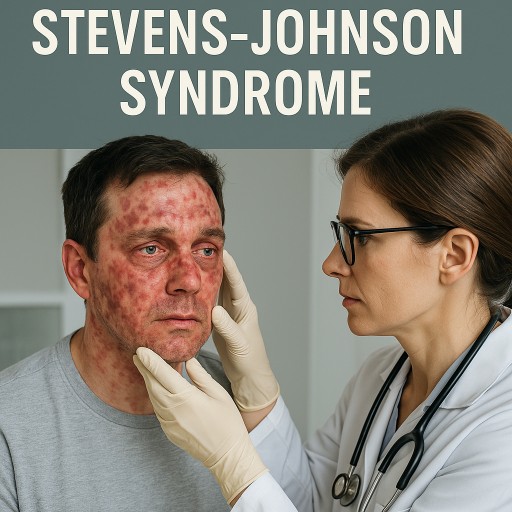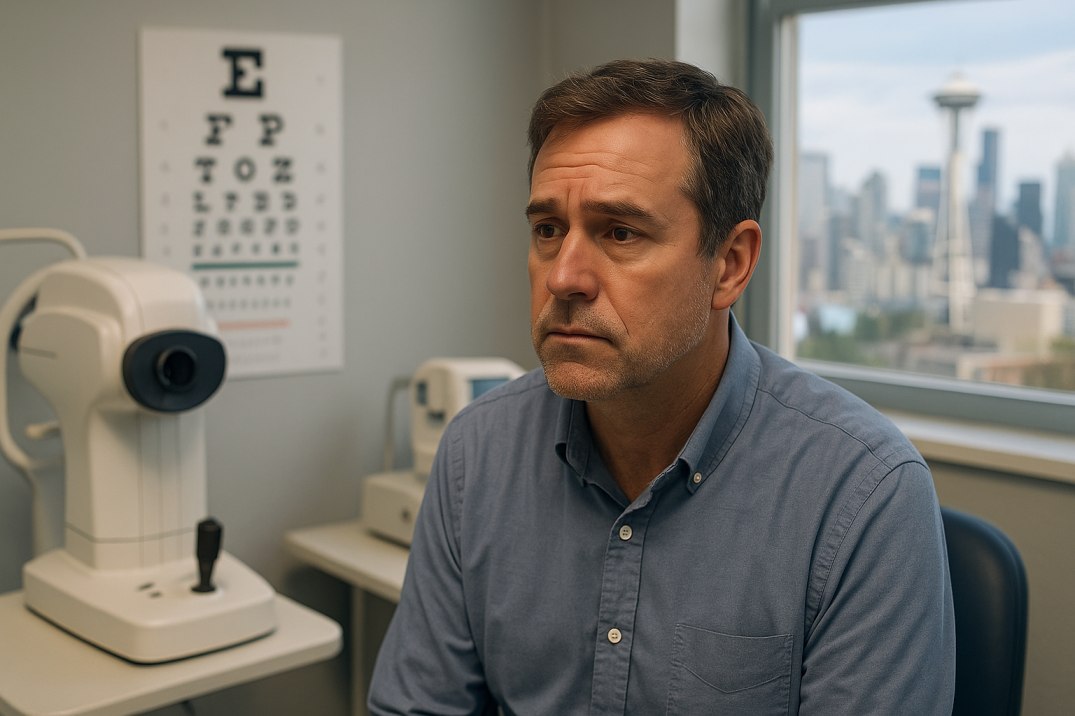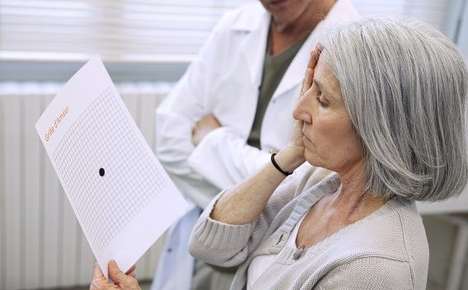What Is Stevens-Johnson Syndrome? Causes & Warnings
Stevens-Johnson Syndrome (SJS) is a rare, life-threatening skin disorder that damages the skin and mucous membranes, including the eyes. Typically triggered by severe medication reactions or infections, SJS demands urgent medical care. Without prompt treatment, it risks permanent vision loss or blindness.

SJS triggers fall into three key categories:
medications, infections, and genetic/immune risks.
1. Medications
Common culprits include:
-
Antibiotics (e.g., sulfonamides, penicillins)
-
NSAIDs like ibuprofen or naproxen
-
Anticonvulsants (for epilepsy/mental health)
-
Allopurinol (gout treatment)
Why? These can spark abnormal immune reactions, causing skin/mucous membrane inflammation.
2. Infections
Pneumonia, herpes, or Mycoplasma pneumonia (bacterial lung infection) may activate SJS.
3. Genetic & Immune Risks
-
Genetic markers: Increase susceptibility to medication-triggered SJS.
-
Weakened immunity: HIV, cancer, or immunosuppressive illnesses heighten risk.
Symptoms of Stevens-Johnson Syndrome
SJS typically starts with flu-like signs before progressing to severe skin reactions. Key symptoms include:
Early Warning Signs (1-3 days before rash):
-
High fever
-
Sore throat and cough
-
Fatigue and body aches
Advanced Skin & Mucous Membrane Issues:
-
Painful rash: Red/purple patches that blister and spread
-
Skin peeling: Top layer shedding (resembling severe burns)
-
Mucosal sores: Painful ulcers in the mouth, eyes, or genitals, complicating basic functions like swallowing or urination
-
Ocular inflammation: Red, swollen eyes (potentially leading to vision loss)
Due to its burn-like skin damage, SJS patients often require specialized care in hospital burn units.
How Stevens-Johnson Syndrome Affects Vision
SJS frequently causes severe, sometimes permanent eye damage. Key ocular complications include:
-
Initial inflammation: Red, swollen eyes that rapidly deteriorate
-
Chronic dry eye: Tear gland damage reduces lubrication, causing persistent dryness
-
Corneal ulcers/scarring: Open sores or scarring on the cornea (leading cause of SJS-related blindness)
-
Light sensitivity (photophobia): Painful reaction to bright light due to surface damage
-
Conjunctival adhesions (symblepharon): Eyelids fuse to the eyeball, limiting movement
-
Eyelid problems: Misalignment or inward-growing lashes (trichiasis) that scratch the cornea
Without aggressive treatment, these issues can result in permanent vision loss or blindness.
Stevens-Johnson Syndrome demands emergency hospitalization due to its life-threatening nature.
Critical treatment steps include:
1. Eliminate Triggers
-
Immediately halt any medication suspected of causing SJS.
2. Hospital-Based Care
-
Admission to ICU or specialized burn units
-
IV fluids to combat dehydration
-
Aggressive pain control
-
Advanced wound care (similar to burn treatment)
3. Mucosal Repair
-
Medicated eye drops/antibiotics for ocular damage
-
Oral numbing solutions for painful mouth ulcers
4. Inflammation Control
-
Corticosteroids to reduce swelling (in select cases)
-
IV immunoglobulin (IVIG) therapy to halt autoimmune attacks
Potential SJS Complications
Severe skin and internal tissue damage from SJS may lead to:
-
Sepsis: Life-threatening bloodstream infection
-
Organ failure: Liver, kidney, or lung damage
-
Vision loss: Permanent blindness in unresolved cases
-
Skin complications: Chronic scarring and sensitivity
Can You Prevent Stevens-Johnson Syndrome?
Though not always preventable, these strategies reduce SJS risk:
-
Avoid previous triggers: Never re-use medications that caused past reactions
-
Genetic screening: Test for HLA-B*1502/other markers if SJS runs in your family (critical before high-risk drugs)
-
Medical history transparency: Always inform healthcare providers about prior medication reactions
SJS is a vision-threatening emergency requiring urgent care.
If you experience:
-
Red/painful eyes + light sensitivity
-
Blurry vision with flu-like symptoms
-
Skin rashes or mouth sores.
FAQs
-
What is Stevens-Johnson syndrome and what causes it?
Stevens-Johnson syndrome (SJS) is a rare, serious skin and mucous membrane reaction, usually triggered by medications like antibiotics or anticonvulsants, or infections.
-
Who is most at risk of developing Stevens-Johnson syndrome?
-
What are the early signs and symptoms of Stevens-Johnson syndrome?
-
How quickly does Stevens-Johnson syndrome progress?
-
How is Stevens-Johnson syndrome treated?
-
Can Stevens-Johnson syndrome cause long-term complications?
-
How long does recovery from Stevens-Johnson syndrome take?
-
What medications commonly trigger Stevens-Johnson syndrome?
-
How can I tell if a rash is Stevens-Johnson syndrome?
-
Is Stevens-Johnson syndrome contagious?
-
What should I do if I suspect Stevens-Johnson syndrome?
-
Can Stevens-Johnson syndrome come back after recovery?



